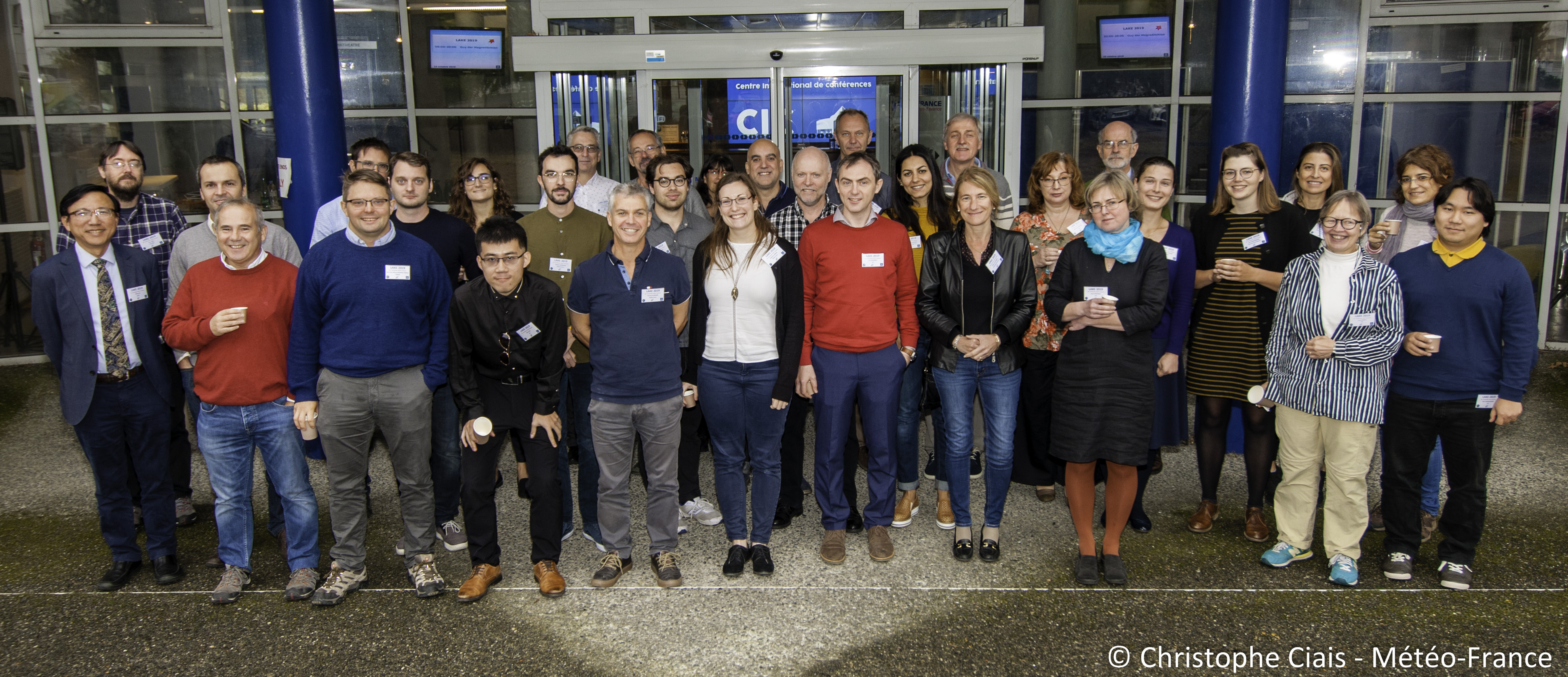LAKE2019
6th workshop on parameterization of lakes in Numerical Weather Prediction and climate modelling
The 2019 Toulouse workshop continues the lake-parameterization workshop series held in Zelenogorsk (Russia, 2008), Norrkoping (Sweden, 2010), Helsinki (Finland, 2012), Evora (Portugal, 2015), and Berlin (Germany, 2017).
- Workshop website
- List of participants
- Report of Margarita Choulga
- Summary of the discussions
- Group picture (HR)
Thanks for your active participation!
Modelling
1. Opening Patrick Le Moigne
2. Application of FLake to stratification modeling: problems and solutions Georgiy Kirillin
3. Surface Stress and Mixing in Small, Sheltered Boreal Lakes Murray MacKay
4. Two-way Atmosphere-Lake-Ice Coupled Regional Climate Simulation over the Great Lakes Region Philip Chu
5. Improvement of lake water dynamics in land surface model Thibault Guinaldo
6. Improve Lake Effect Snow Predictions Through a loosely-Coupled NWP-Lake-Ice Modeling Approach Philip Chu
7. Global lake database: towards increased resolution Ekaterina Kurzeneva
8. Sensitivity analysis of FLake lake model for global land surface modeling Anthony Bernus
Climate Impact
10. Easy lakes? Rationale and latest news from the ISIMIP lake sector Wim Thiery
11. Local factors affecting climate related warming of lakes Carl Love Mikael Raaman Vinnaa
12. Climate change impact on lake surface energy budget in the 20th century Delphine Leroux
13. Assessment of the climate impact of a large artificial reservoir using a mesoscale simulations over a Typical Meteorological Year Rui Salgado
14. Effect of climate warming on the mixed layer depth in lakes Tom Shatwell
15. Effect of future climate change and selective withdrawal on the thermal structure of Germany’s largest drinking water reservoir Chenxi Mi
Model Validation and Applications
16. Verification of lake surface water temperature and ice on/off dates Margarita Choulga
17. Multi-scale validation of a 3D one-way coupled atmospheric and lake hydrodynamic model Marina Amadori
18. Snow and ice in wintertime FLake within the FMI operational HIRLAM Laura Rontu
19. Some features of wintertime surface energy balance in a small dimictic lake in Finland: implications to carbon cycle related processes Ivan Mammarella
Reservoirs
20. LAKE2.0 and FLake simulation results of the Alqueva artificial reservoir dynamics. Maxim Iakunin
21. Effects of reservoir operations on aquatic habitat in a montane reservoir Clelia Luisa Marti
22. Implementing reservoirs in CTSM: accounting for reservoir construction in the 20th century. Inne Vanderkelen
23. Effect of Autumn reservoir overturn on turbulent fluxes over Alqueva Miguel Potes
24. Parameterization of empirical models for chl-a retrieval in reservoirs with two different sources of data applying different atmospheric corrections. (I) Calibration. Carmen Cillero Castro
Data Assimilation
25. Cycled data assimilation for lakes via atmosphere-surface exchange to initialize lake conditions in US weather models Stan Benjamin
26. Meteolakes.ch, an operational 3D hydrodynamic platform for lakes Damien Bouffard
Remote Sensing
26. Delivering the Lake Essential Climate Variables - an update from ESA lakes CCI Stefan Simis
27. A global observatory of inland waters responses to environmental change (GloboLakes) Andrew Tyler
28. Evolution of satellite-derived lake ice products for climate studies Claude Duguay
29. Effects of Winter Conditions on Water Quality of Lakes-Using Remote Sensing and Machine Learning Homa Kheyrollah Pour
30. Assessment of the influence of climate change on the trophic status of Italian subalpine lakes using time series of chlorophyll-a derived from satellite products Mariano Bresciani
31. Bio-optical modeling of lakes in cascade in Germany – preliminary results Igor Ogashawara

